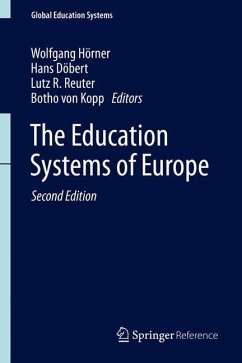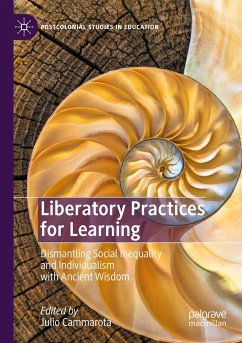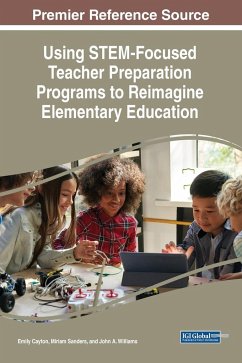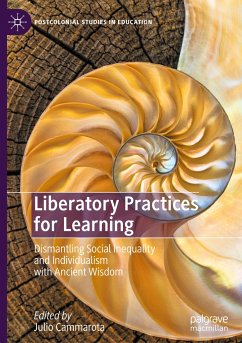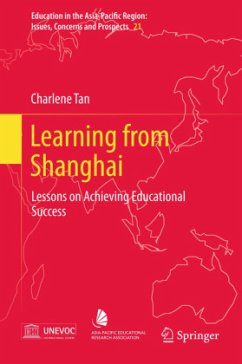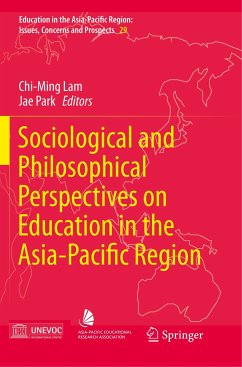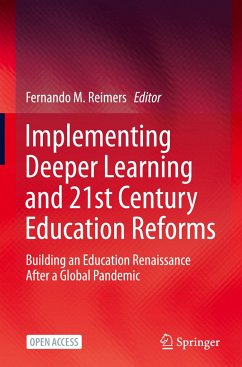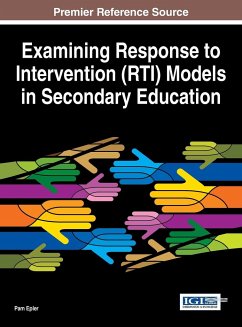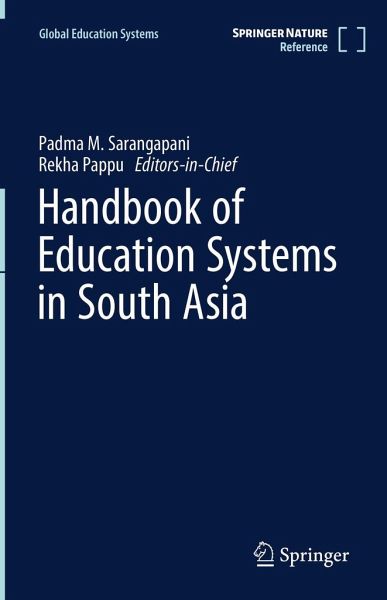
Handbook of Education Systems in South Asia
Versandkostenfrei!
Versandfertig in über 4 Wochen
563,99 €
inkl. MwSt.

PAYBACK Punkte
282 °P sammeln!
This handbook is an important reference work in understanding education systems in the South Asia region, their development trajectory, challenges and potential. The handbook includes the SAARC (South Asian Association for Regional Cooperation) countries for discussion---Afghanistan, Pakistan, India, Nepal, Bhutan, Bangladesh, and Sri Lanka---while also considering countries such as Myanmar and the Maldives that have considerable shared history in the region. Such a comparative perspective is largely absent within the literature given the present paucity of intra-regional interaction.South Asi...
This handbook is an important reference work in understanding education systems in the South Asia region, their development trajectory, challenges and potential. The handbook includes the SAARC (South Asian Association for Regional Cooperation) countries for discussion---Afghanistan, Pakistan, India, Nepal, Bhutan, Bangladesh, and Sri Lanka---while also considering countries such as Myanmar and the Maldives that have considerable shared history in the region. Such a comparative perspective is largely absent within the literature given the present paucity of intra-regional interaction.
South Asian education systems are viewed primarily through a development lens in terms of inequalities, challenges and responses. However, the development of modern institutions of education and the challenges that it faces requires cultural and historical understanding of indigenous traditions as well as indigenous modern thinkers and education movements. Therefore, this encompassing referenc
e work covers indigenous education traditions, formal education systems, including school and preschool education, higher and professional education, education financing systems and structures, teacher education systems, addressing huge linguistic and other diversities, and marginalization within the formal education system, and pedagogy and curricula. All the countries in this region have their own unique geographical, cultural, economic and political character and histories of interest and significance, and have responded to common issues such as overcoming the colonial legacy, language diversity, or girls' education, or minority rights in education, in uniquely different ways. The sections therefore include country-specific perspectives as far as possible to highlight these issues. Internationally renowned specialists of South Asian education systems have contributed to this important reference work, making it an invaluable resource for researchersand students of education interested in South Asia.
South Asian education systems are viewed primarily through a development lens in terms of inequalities, challenges and responses. However, the development of modern institutions of education and the challenges that it faces requires cultural and historical understanding of indigenous traditions as well as indigenous modern thinkers and education movements. Therefore, this encompassing referenc
e work covers indigenous education traditions, formal education systems, including school and preschool education, higher and professional education, education financing systems and structures, teacher education systems, addressing huge linguistic and other diversities, and marginalization within the formal education system, and pedagogy and curricula. All the countries in this region have their own unique geographical, cultural, economic and political character and histories of interest and significance, and have responded to common issues such as overcoming the colonial legacy, language diversity, or girls' education, or minority rights in education, in uniquely different ways. The sections therefore include country-specific perspectives as far as possible to highlight these issues. Internationally renowned specialists of South Asian education systems have contributed to this important reference work, making it an invaluable resource for researchersand students of education interested in South Asia.



